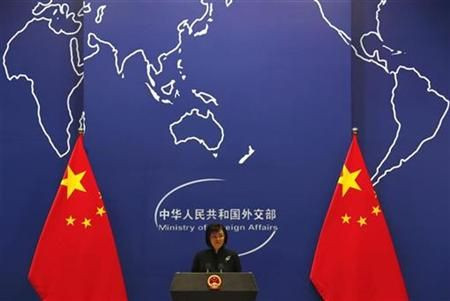Chinese Communist Party Female Delegates Hit Record

The U.S. elections on Tuesday saw unprecedented gains for women. The next Senate will have a record 20 female members, including the first openly gay and first Asian-American women.
China, while it does not have democratically contested elections, also showed progress in the same week as female membership in the governing Communist Party of China increased.
The China Daily newspaper reported that female representation at the CPC National Congress has increased over the past decade. According to the Organization Department of the CPC Central Committee, among the 2,720 delegates attending the National Congress which began Thursday, 521 are women, accounting for almost a fifth.
The last time the Party Congress convened five years ago, female representation was at 20 percent. Five years before that, only 18 percent of the Congress was female.
Xiao Bailing, president of the Hunan Women's Foundation, says more than 25 percent of delegates sent from her central Chinese province were women.
Perhaps just as important is the background that these women are coming from. Many of them represent rural areas and reflect China's still predominantly blue-collar population of factory workers, farmers and teachers.
"The party has attached greater importance to involving more women in the development of grassroots party organizations in recent years," Xiao said.
Many hope that the increased interest of women in politics will open up a dialogue to improve women's rights.
"More female delegates will give a greater voice to Chinese women and call for improved welfare and rights for women," said Sun Xiaomei, a professor at Women's University in Beijing.
Yang Yayun, a director at the Beijing Administrative College, thinks women can bring into the government something that men may not be able to offer.
"Compared with men, women are more tolerant and compassionate, so when more women come on the political stage, they can better play the role of 'glue' that holds the society together and reduce conflicts," Yang said.
Though the government seems to be moving toward gender equality, it is still very unlikely a woman will make the Party's Politburo Standing Committee, the country's ruling group, in the near future.
China's highest ranking female politician to date is Wu Yi, dubbed the "Iron Lady" by Chinese media, and the "Goddess of Transparency" by Time magazine. She was the only woman on the 24-member Politburo Central Committee when she served, and was also the vice premier until 2008, when she retired. She was succeeded on the committee by Li Keqiang, now widely expected to be appointed prime minister by the party congress, to succeed Wen Jiabao.
© Copyright IBTimes 2025. All rights reserved.






















